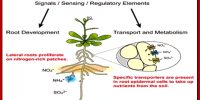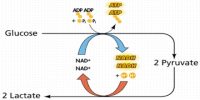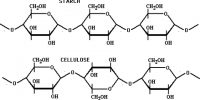Auxin:
Auxin is a phytohormone. The biochemical substances formed in the plant bodies which, remaining in a very lower concentration, control the growth of plants are known as phytohormone.
Formation and nature:
The word auxin is derived from the Greek word auxein meaning to grow. At appropriate concentrations of auxins normally stimulate the enlargement of cells and increase the flexibility of cell walls. Auxin is a growth stimulating hormone.
Types:
The main auxin of plants are Indole -3 acetic acid (IAA).

Indole -3 acetic acid (IAA)
Besides, There are three more native —

Indole-3-butyric acid (IBA)

4-Chloroindole-3-acetic acid (4-CI-IAA)

2-phenylacetic acid(PAA)
and some other synthetic hormones are present.
Position:
Auxin is mostly present at a great amount in the growth regions, such as- apical bud. lndole-3 acetic acid (IAA) is formed in the plant bodies from tryptophan.
The physiological effects of Auxin:
1. Cells increase in length with the effect of auxin.
2. It helps plant to absorb more water.
3. It creates dominance in the growth of apical buds, called apical Apical buds grow rapidly because of the presence of auxin at a large amount in the apical regions.
4. Auxin initiates the formation of roots.
5. It helps in the formation of fruits without pollination and fertilization.
6. It increases the rate of respiration.
7. The effect of auxin prevents the formation of abscission layers in the stalk of fruit and leaves that is why leaves and fruits do not drop.
8. It helps in the formation of seedless fruits.















